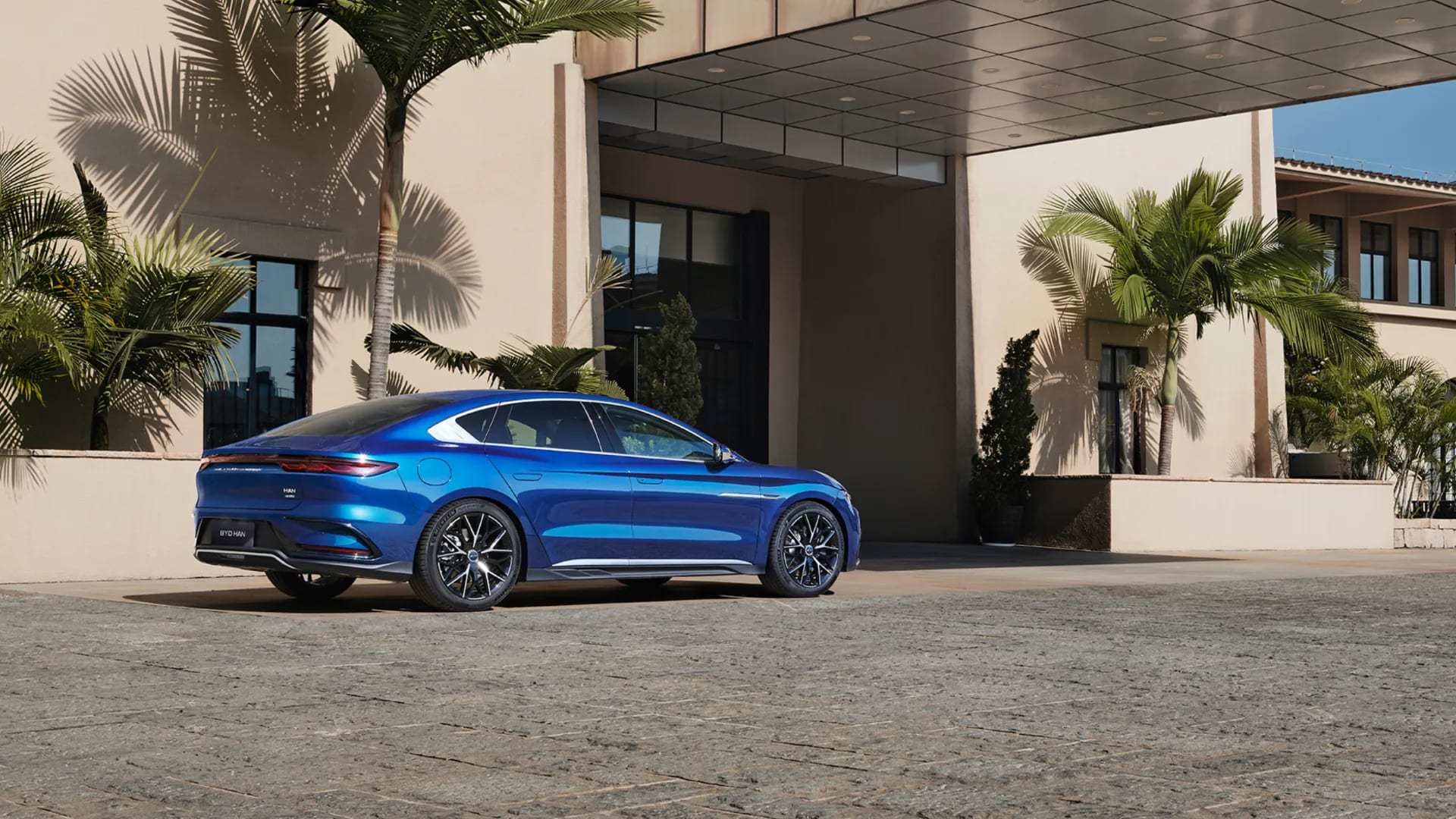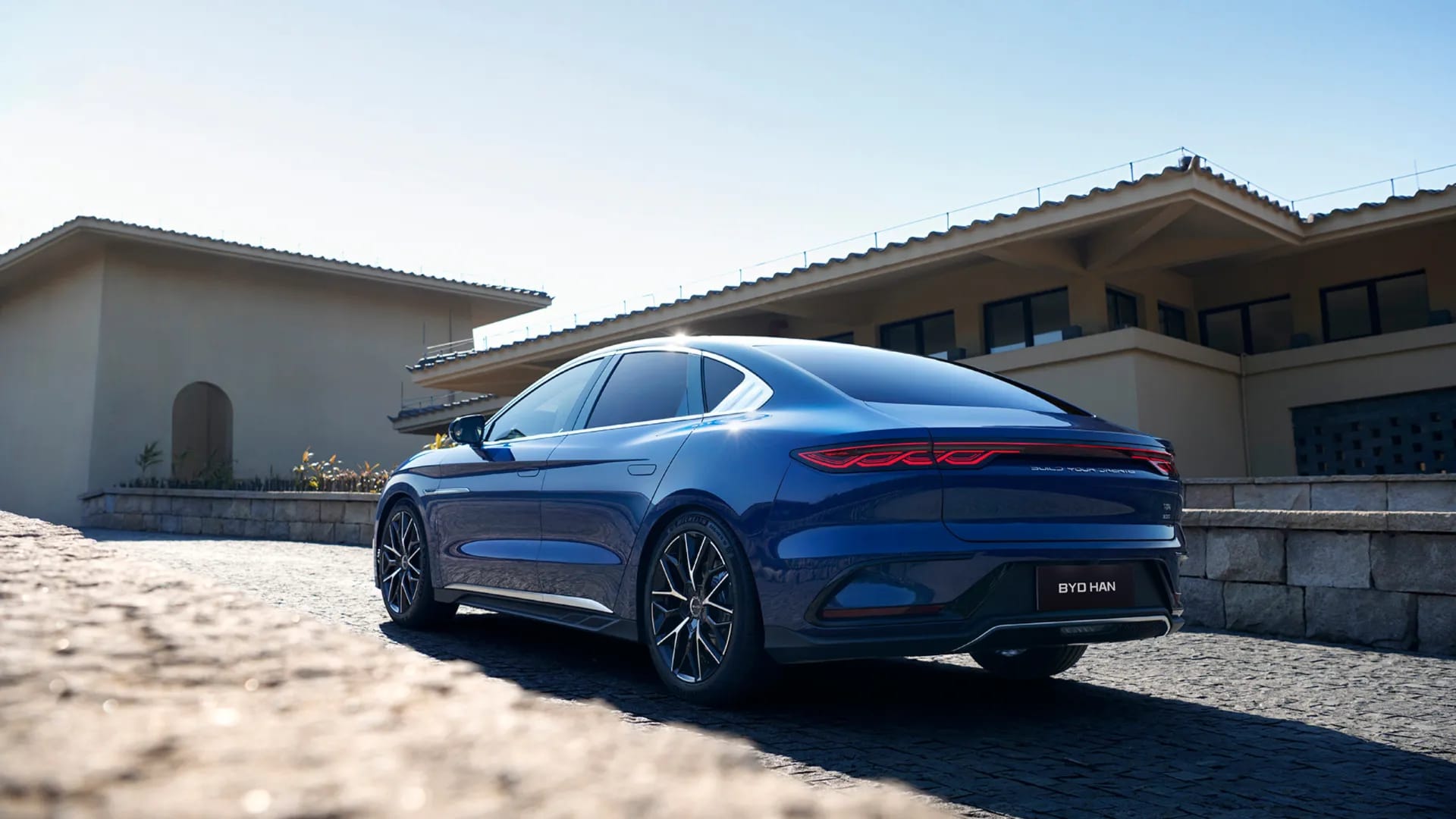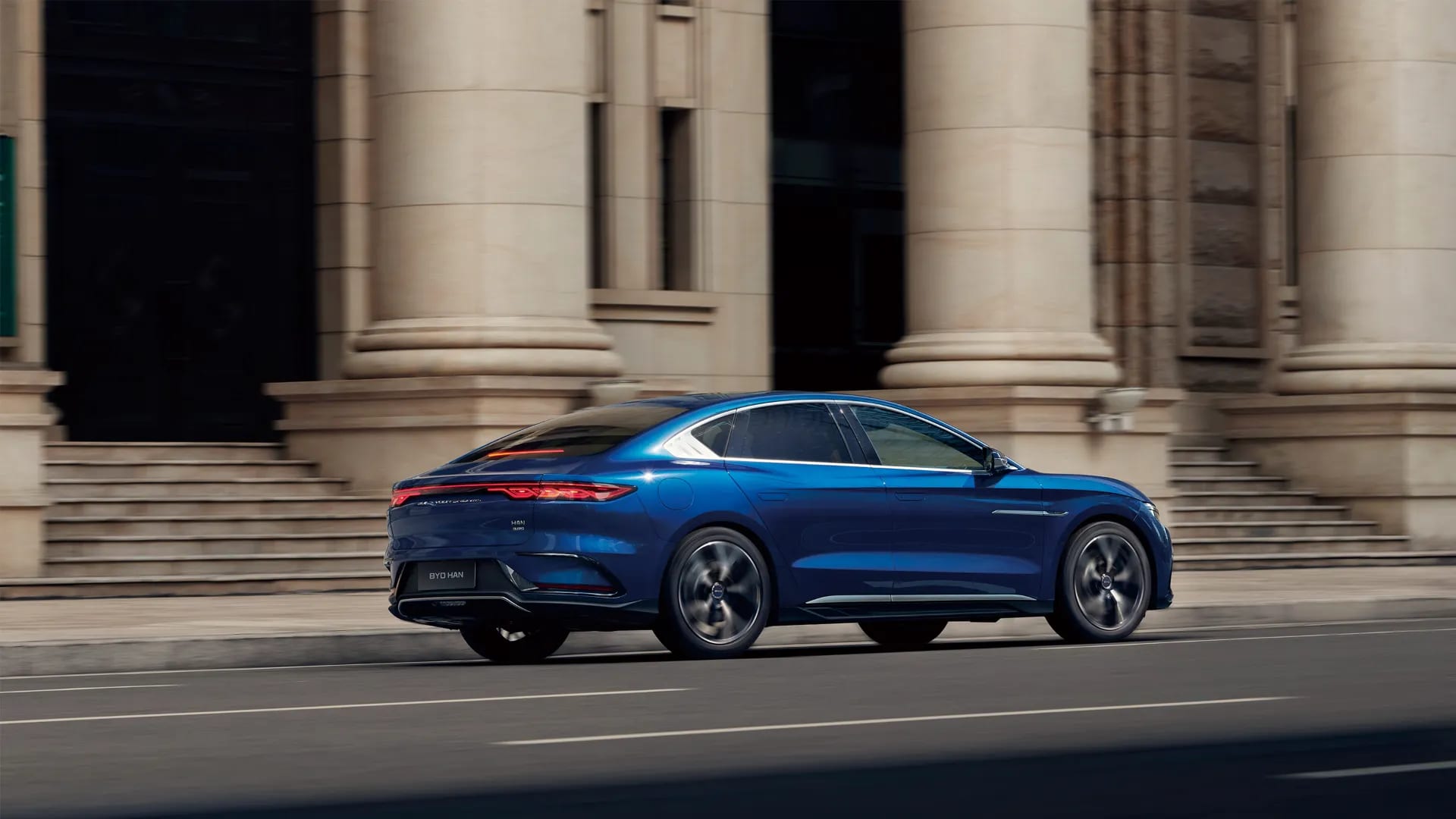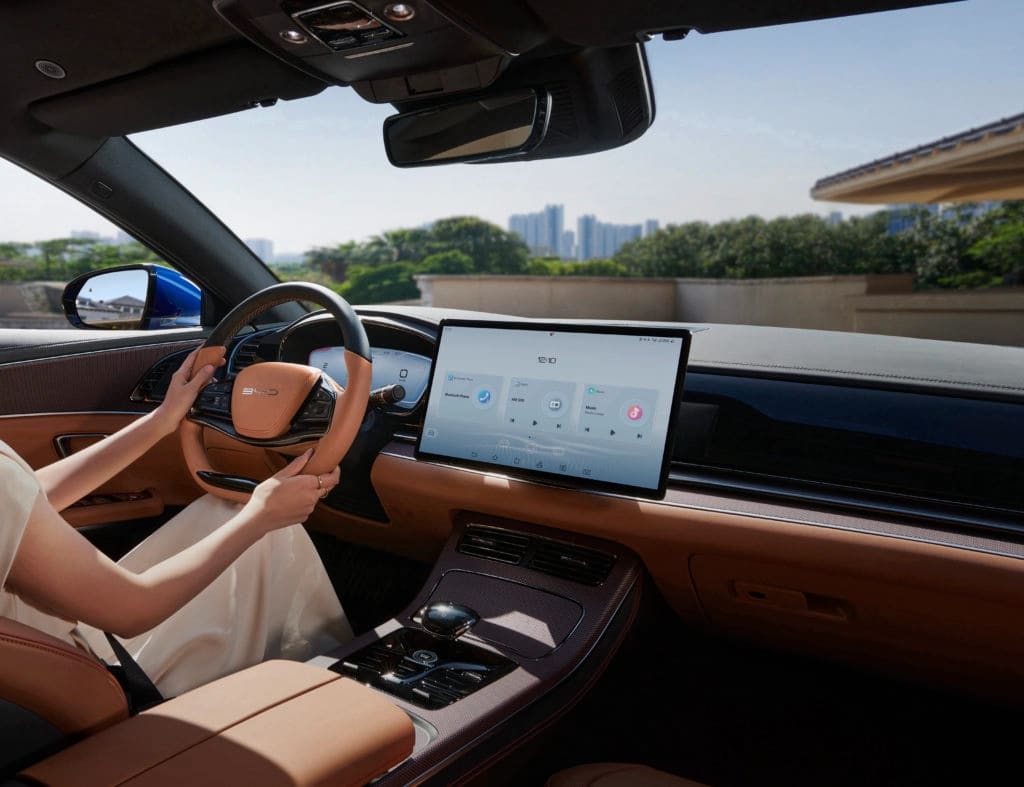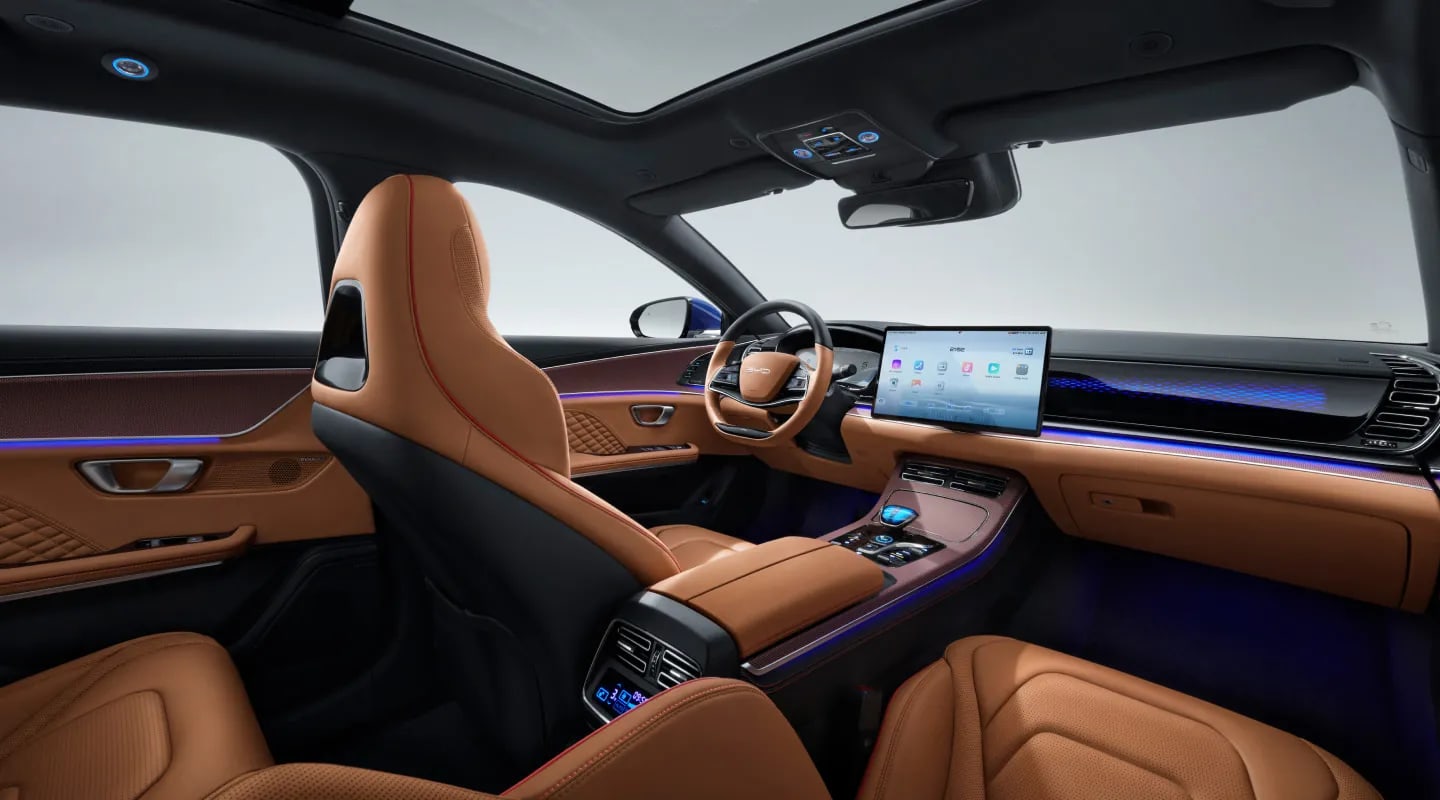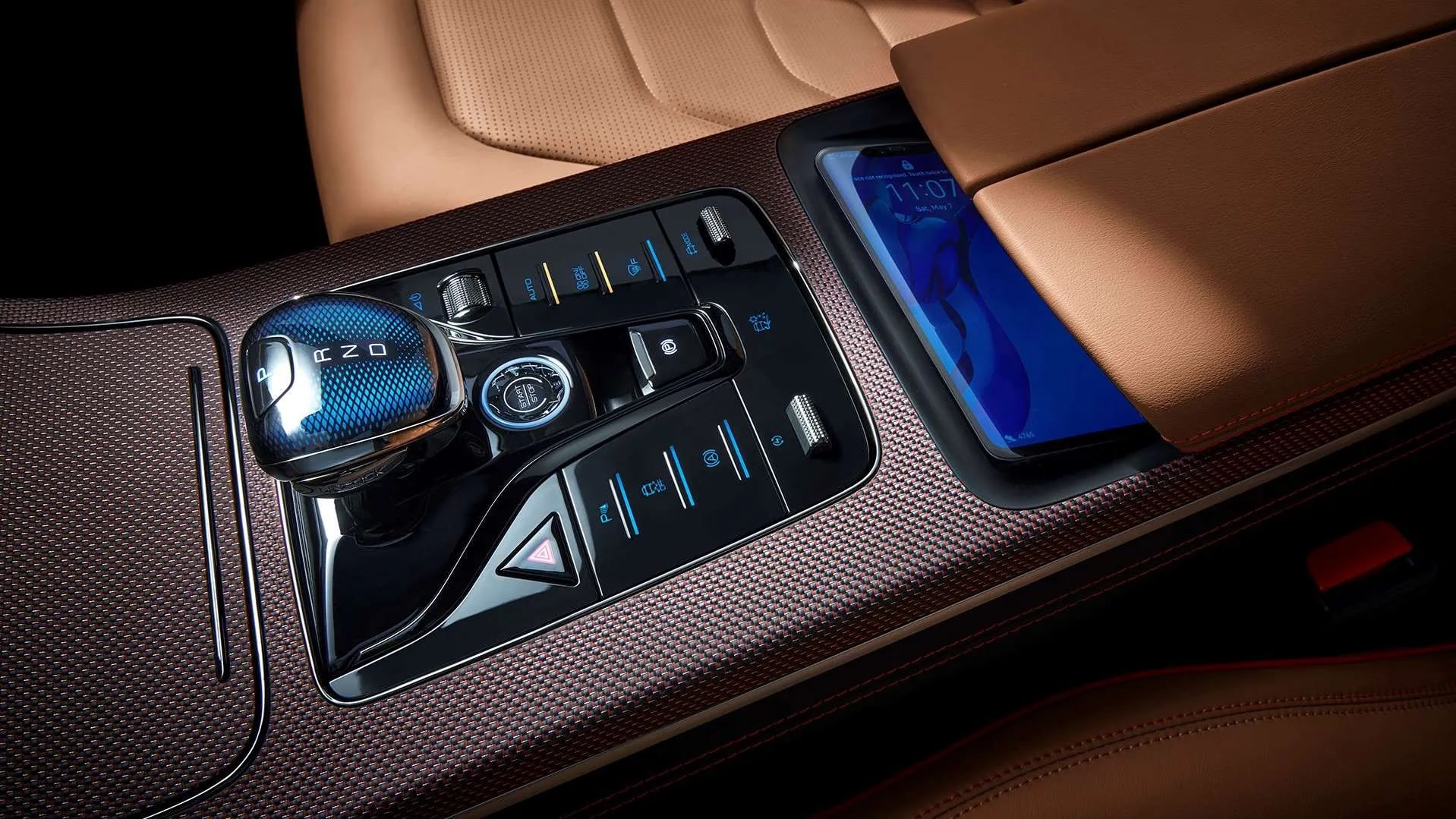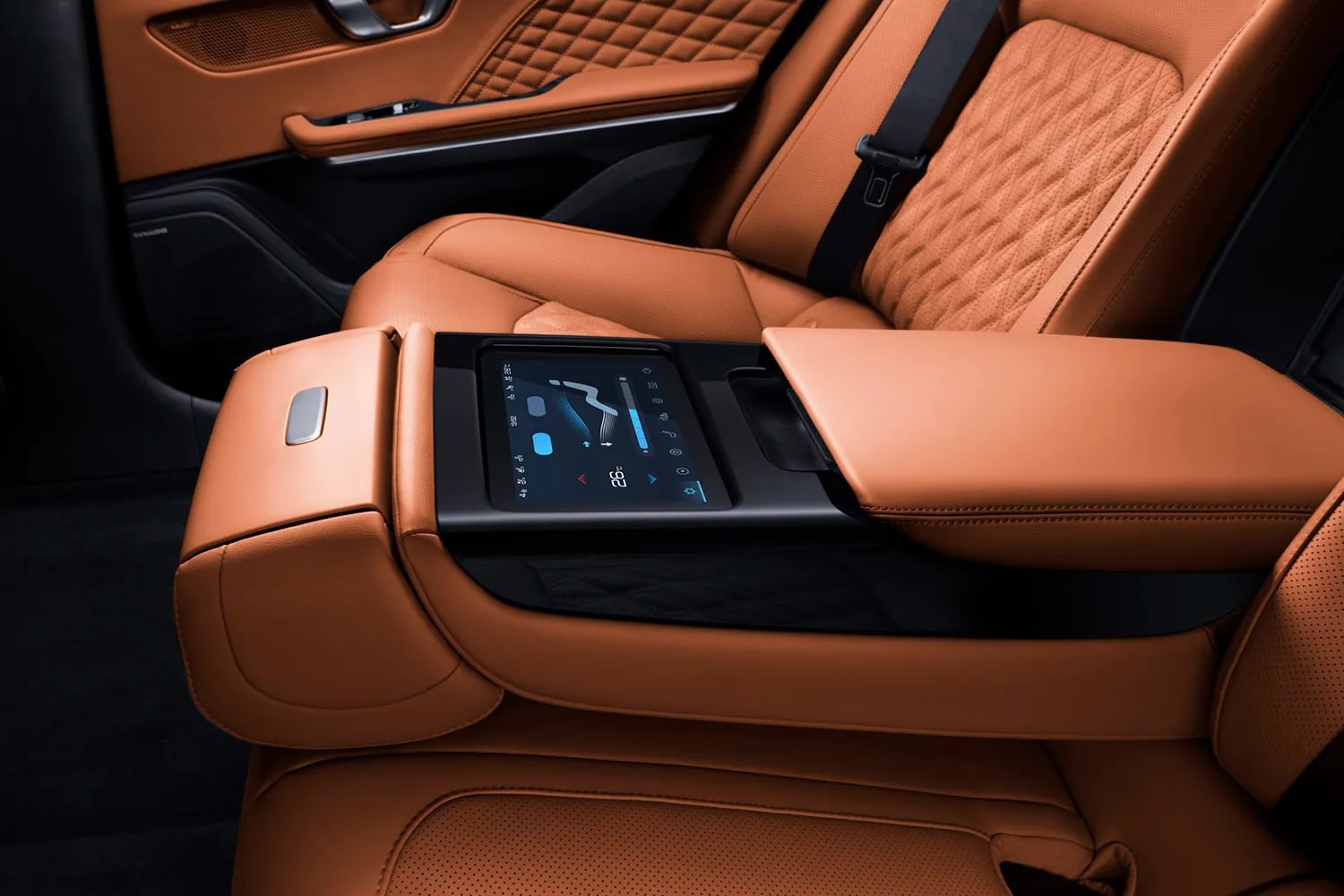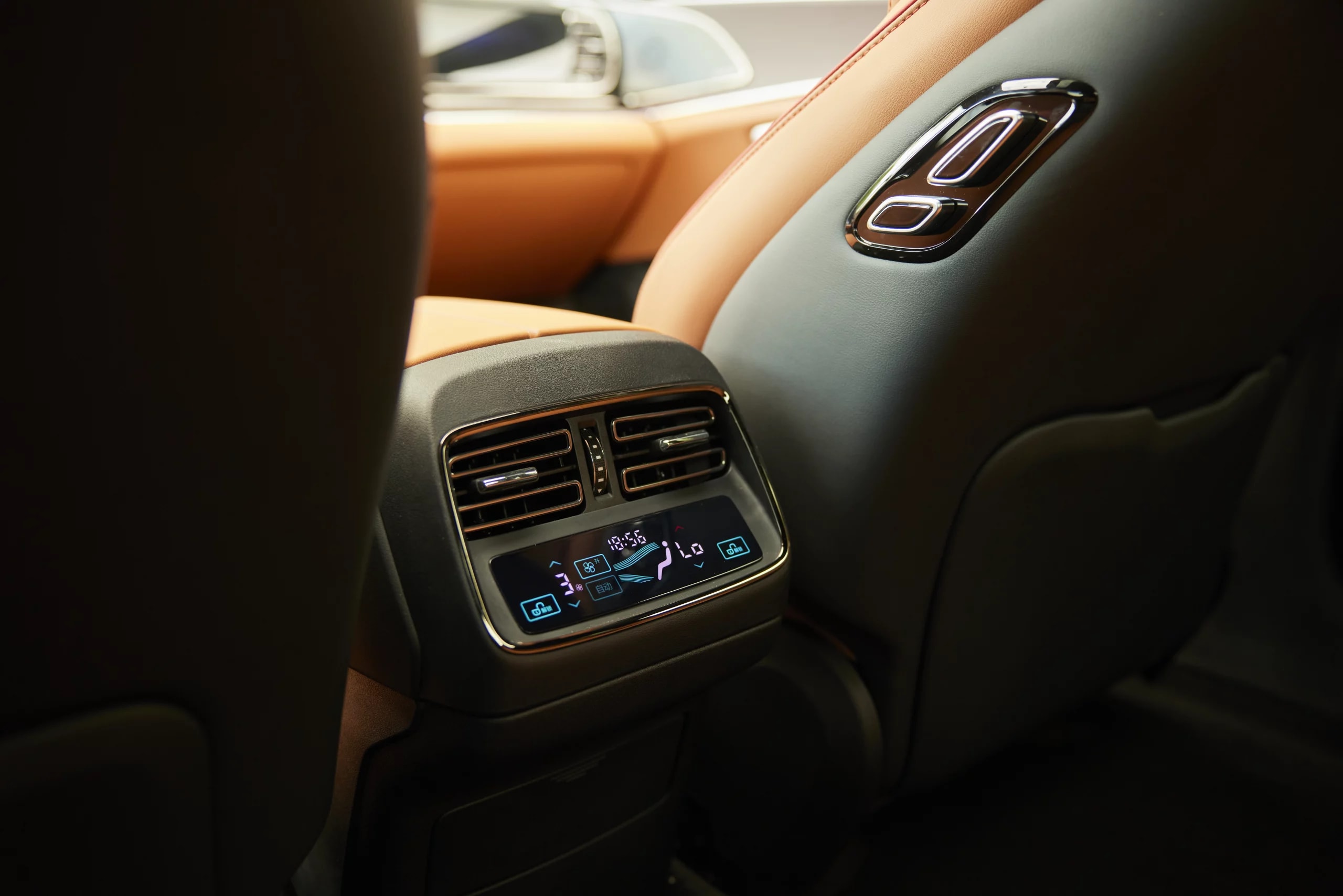BYD Han
A luxurious and electric sedan car that promises impressive performance (518 horsepower and 3.9 seconds for 0 to 100 km/h), alongside a driving range of up to 521 kilometers.
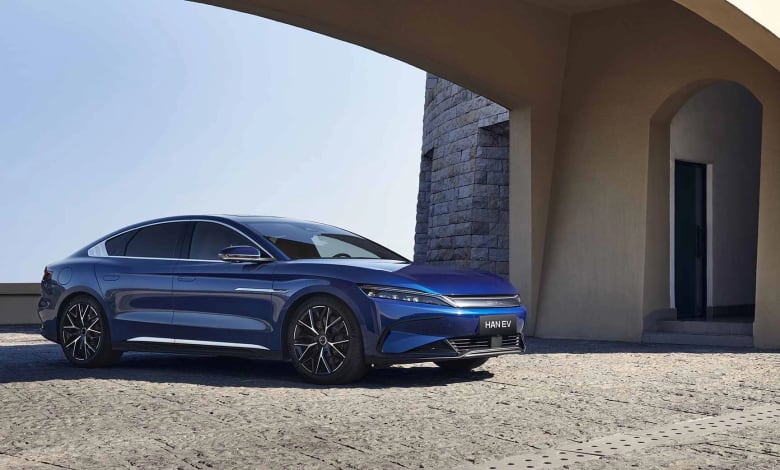
In person, the Han is a spacious and impressive sedan car with a sporty-elegant style that simply looks good. The measurements are generous, with a length of 4.99 meters, a width of 1.91 meters, and a height of 1.49 meters, and it is clear that the company’s designers (with obvious European heritage) did an excellent job here. Perimeter LED lighting, front and rear parking sensors, 360-degree cameras, an electric panoramic glass top, 19-inch wheels, and an electric boot, revealing a respectable volume of 410 liters, acceptable for the category.
Interior design
In the passenger compartment, you’ll notice the typical design of elegant sedan cars, but without the frills that come with, say, the Eto 3 model. The material quality and assembly are excellent, and the color combination of the test car is effective. However, animal lovers may be disappointed to find high-quality leather seats rather of the synthetic leather that is gaining market share. Human engineering is not always the most successful, but it has the advantage of being simple to learn how to use the various systems, even if they are not necessarily intuitive in other circumstances. Not only are the front seats sporty, but so are the rear seats, which include functions such as electric adjustment, heating, and ventilation, as well as a control screen located in the central armrest, which gives the dignified passengers control over climate, music, ambiance lighting, opening the electric roof or blinds, and more. These are joined by a spacious 292 cm wheelbase and a nearly level rear floor, which provides plenty of legroom for rear passengers but slightly less headroom for taller people. A 12.3-inch digital instrument cluster, a 15.6-inch multimedia screen (which turns to the side with manual operation…), a wireless charging pad for mobile devices, a high-quality sound system, and electronic steering wheel adjustment are also included. However, Android Auto and Apple CarPlay compatibility remain unavailable for the moment.
Performance
When you hit the road, you’ll notice an amazingly fast automobile that glides down the highway in the style of a fast and comfortable GT car designed for long distances. The technical specifications include a pair of electric motors with a combined power of 518 horsepower or 380 kw, as well as dual propulsion for enhanced grip and impressive straight-line performance with acceleration from 0 to 100 km/h in 3.9 seconds, made possible by the transmission control.
Expect a fast and comfortable sedan rather than a sharp and agile car for tackling mountain routes, even though the brake requirements include a Bosch braking system and Brembo calipers. The top speed is limited to 180 km/h, which is much slower than competitors, however this value is irrelevant on public roads. The safety criteria contain all of today’s modern safety features, including different aural warnings if you don’t drive cautiously, although the vehicle has not yet been evaluated in the European crash test.
Range
The model is equipped with a blade battery with a capacity of 85.4 kWh, quite similar to the one installed in the BYD Tang, but due to its low and significantly aerodynamic vehicle (0.23 Cd), the official range here is significantly higher and stands at 521 km according to the manufacturer’s data. In a test under less ideal conditions, we reached a range of around 450 km, but keep in mind that any abuse of the accelerator consumes much more electricity, and it is easier to drop below the 400 km range.
Although the car includes regenerative braking, it is not possible to drive purely on regenerative braking without utilizing the traditional brake pedal. The biggest disadvantage is that the car does not support three-phase charging and has a lengthy home charge period of up to 12 hours. It does, however, offer fast DC charging up to 135 kWh.
Is it worth the money?
The BYD Han costs around €70,000 in EU. Some of its competitors are more expensive, such as Tesla S (€102,990), Genesis G80 (€73,380). Mercedes EQE however seems to be on par priced at €70,626.

